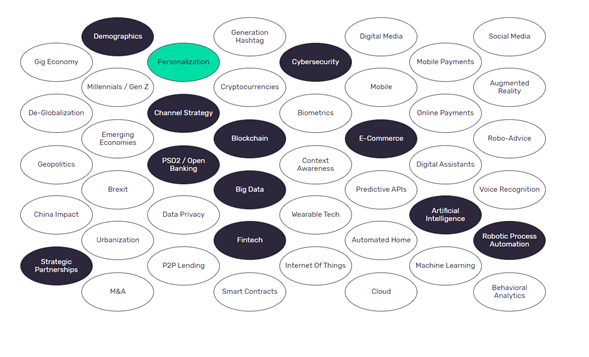Every company has the potential to be disrupted by technology, but big banks are more likely to be disrupted than most other organisations. There has been an influx of new digital banks changing the way we view personal banking and setting a new standard for customer experience.
Digital banks have sprung up in reaction to new open banking regulations, which allow third parties access to banking data and APIs to develop new products for customers. Part of their appeal stems from a lack of consumer trust in big banks, with many consumers concerned about unfair treatment from large banks, as well as a lack of transparency.
Momentum seems to be on the side of digital banks, with recent funding demonstrating investor confidence. Revolut recently became the UK’s most valuable fintech startup, raising $500m through funding. Earlier in the year, Starling Bank received a £60m investment from existing investors, while Monzo and Monese are both in talks to raise £100m.
The Performance Against Customer Expectations (PACE) study concluded that “appetite for digital banking has increased emphatically in the past year”. Accenture predicts that digital-only banks are on track to triple the size of their customer base within 12 months to more than 35 million people. This comes at a time when mainstream banks are increasingly closing their high street branches. TSB, for example, plans to close 15% of its UK high street stores after losing 80,000 customers in 2018 due to an IT crash.

GlobalData has identified the major themes impacting the banking sector in 2020, and digital banks are leading in themes such as mobile, robo-advice, personalisation, channel strategy, mobile payments, and social media. Perhaps the main area where digital banks are leaps and bounds ahead of their traditional banking counterparts is customer experience.

US Tariffs are shifting - will you react or anticipate?
Don’t let policy changes catch you off guard. Stay proactive with real-time data and expert analysis.
By GlobalDataUltimately, the kingmakers in the banking industry will be consumers. The low barriers to switching accounts mean that those offering the best experience and greatest convenience will be the most popular. Fintech firms, which already lead in consumer experience, are getting the financial backing that they need to challenge the mainstream banks on a more equal footing. In addition to Revolut, Klarna has been valued at $5.5bn, and this valuation is expected to rise.
As fintech companies continue to develop and grow, traditional retail banks are reacting to the disruptive threat. Lloyds has invested $3bn in a digital transformation project, which aims to improve overall customer experience. Goldman Sachs has recently launched online bank Marcus, aiming to use its experience and scale to defeat its digital rivals. Marcus is designed to be easy-to-use and offers high interest, zero-fee accounts. Santander has also set aside $22.45 billion to spend on digital technology over the next four years.
Despite Monzo and Starling Bank both hold banking licences, major displacement is yet to be seen. What is clear is that traditional banks need to be on top of their game if they wish to remain competitive.








